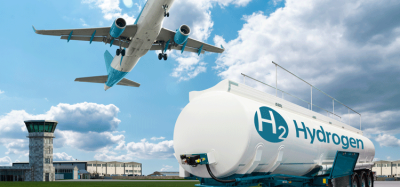More airline bailouts and insolvencies predicted due to COVID-19
- Like
- Digg
- Del
- Tumblr
- VKontakte
- Buffer
- Love This
- Odnoklassniki
- Meneame
- Blogger
- Amazon
- Yahoo Mail
- Gmail
- AOL
- Newsvine
- HackerNews
- Evernote
- MySpace
- Mail.ru
- Viadeo
- Line
- Comments
- Yummly
- SMS
- Viber
- Telegram
- Subscribe
- Skype
- Facebook Messenger
- Kakao
- LiveJournal
- Yammer
- Edgar
- Fintel
- Mix
- Instapaper
- Copy Link
Posted: 27 July 2021 | International Airport Review | No comments yet
New study finds that 81 per cent of capital markets investors expect to see more regional carriers receiving government bailouts. Fifty seven per cent predict the sector will be targeted by private equity as a recovery play.


An overwhelming majority (81 per cent) of capital markets investors expect to see more government support to ensure the survival of regional airlines as carriers struggle to survive the prolonged collapse in demand for air travel resulting from the COVID-19 pandemic.
According to a capital markets report entitled ‘Navigating CovExit: searching for value in the debt markets’, commissioned by Ocorian, a globalcapital markets, fund administration and corporate and fiduciary services provider, three quarters (74 per cent) of respondents believe governments will continue to ride to the rescue of national carriers despite the controversy surrounding state bailouts.
Even with government support on-hand, two-thirds (66 per cent) of capital markets investors expect to see more airlines enter liquidation over the coming 12 months but over half of (56 per cent) are anticipating an uptick in M&A activity with private capital funds and cash-rich, state-sponsored carriers as potential buyers.
According to Ocorian’s study, as demand for aircraft rebounds, private equity funds are likely to extend their presence in the aviation sector’s distressed debt market and deploy capital at the right time in the cycle. The majority (57 per cent) of respondents believe that private equity will target the airline sector as a corporate recovery play over the next 12 months.
The report suggests that renewed private equity interest is likely to be stimulated by the growing focus on carbon emissions, with 23 per cent of investors believing that airlines and travel businesses are well-placed to capitalise on the “green revolution” expected in 2021 and beyond. With the airline industry targeting net-zero emissions by 2050, many airlines have already announced their commitments to achieving this aim and more are set to follow. With aviation accounting for around 2 per cent of total global greenhouse gas emissions, should the sector achieve its goal it could have significant environmental and financial benefits.
The research also examines the feasibility of airlines raising finance through their securitising alternative assets such as aircraft, engines, hangars as well as intangible assets such as landing slots and brand IP rights. Respondents believe that it will be easiest for regional carriers (61 per cent), charter airlines (60 per cent) and international airport hubs (57 per cent) to secure further financing against such alternative assets. Conversely, they believe that it will be hardest for local airports (32 per cent), airline catering (31per cent) and low-cost airlines (29 per cent) to do the same.
Alan Booth, Global Head of Capital Markets at Ocorian, said: “Airlines are increasing their flight schedules, but conditions will remain volatile as long as governments continue to alter travel restrictions. Government bailouts and credit lines have kept airline insolvencies at bay but the rise in legal challenges may create more opportunities for private capital funds through distressed debt and M&A. While airlines will face more short-term turbulence, the stronger carriers will make a robust post-pandemic recovery, which could gather more momentum if they can demonstrate compliance with carbon emission targets.
“With fossil fuels representing around 30 per cent of airlines’ total cost base, as well as being notoriously volatile in terms of cost, many investors will see the airline industry’s goal to achieve net zero carbon emissions as a potentially lucrative avenue should they harness the right technological developments at the right time.
“These developments are likely to stimulate further securitisation, restructuring and insolvency activity. In these scenarios, leveraging a team experienced in delivering corporate trust and agency services to support the debt financing associated with the purchase/sale or lease of aircraft is key.”
Related topics
Aircraft, Airport crisis management, COVID-19, Economy, Emissions, Funding and finance, Sustainability, Sustainable development


















